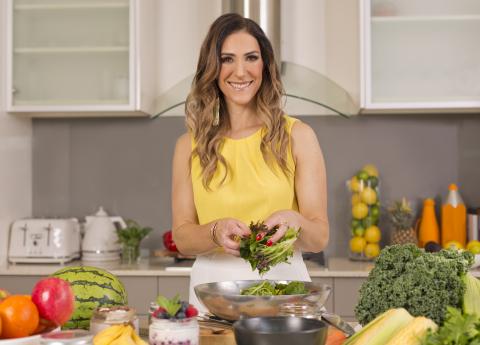
Struggles with weight, wellness, energy and exhaustion are common issues for many women.
In more than 15 years researching obesity, one of the drivers that keeps me going is working with women through clinical trials and health coaching to help them back to wellness.
There’s something in the system that’s blocking people from succeeding with their weight loss and it can continue for decades. What many don’t realise is that it’s not their fault – our bodies are wired in a particular way to fight against us when we try and lose weight.
There are a few components that contribute to this including stress, nutrition, meal timing and self-care. I’ve researched the impact of many of these elements over the years with the aim of better understanding why women struggle to lose weight and keep it off.
Here are some of my top tips based on what I’ve learned, and has worked for my clients
1. Write down your goal daily
Think about how good it would feel for you to have the life that reaching your goal will enable. Writing this down every day and even every night, being really specific and getting really comfortable with your goal can make a big difference. What we’ve learned from coaching and psychologists over several years is how this daily practice can be a powerful trigger for making things happen. It’s not something I had done for myself previously, but I’ve tried it on myself and in clients and it really works!
2. Start with diet
Exercise is often seen as the key to weight loss, but you can lose weight without constant exercise. In fact, there are times when exercise can complicate the process by driving your appetite hormones. When you're trying to lose weight, you want to create a calorie deficit, so you need to restrict calories. To do that with exercise every day can be hard to maintain for most people and it’s often challenging to work out how many calories you should be in deficit. My tip is to focus on the diet first, then exercise can come later when you're trying to maintain that weight loss.
3. Set self-care boundaries
This is something I do with my clients and it has been a game changer. There are four key areas – health, relationships, work and finance. I recommend setting two boundaries for each of these criteria. With work, for example, your boundaries might be that you won’t check emails after work and won’t work weekends. With finance, a boundary might be not taking a job unless it offers a certain level of salary. Setting boundaries in relationships might mean resisting pressure to go out with friends when you are already tired or have a busy time ahead. This is about boosting your energy and fighting the busyness and exhaustion we can all feel by setting clear boundaries for yourself. I really believe this will change your life.
4. Play the long game
This is about giving yourself the best chance to succeed and thrive in the long term. People often don’t think about the long game – we make a decision that we’re going on a diet and we’re starting today, without considering where our minds and bodies are at in this moment. We might be tired, we might be stressed, we might be depleted. Trying new eating patterns or starting an exercise regime when you’re not yet ready puts your body under more stress and make you less likely to keep up the changes longer term. Give yourself the best chance to succeed by taking small steps, finding a rhythm that’s right for you and recognising that everyone’s life and lifestyle is different.
5. Map your energy levels
Another useful tip is to map your energy levels throughout the day over the course of a week to help you understand when you’re likely to be at your most productive. Are you a morning person, or do you find you have more energy in the afternoon? Don't try and force yourself to do things in the afternoon if you know that's when you're tired, then find yourself feeling guilty or beating yourself up about not achieving as much as you’d like. Then try mapping your energy levels against your eating habits – do you notice any difference when you're skipping breakfast, or you're having a coffee? Are you finding yourself more tired after lunch in the afternoons? This can be a powerful way of getting to know yourself and what helps you to thrive. It’s a simple exercise, but it can transform your energy by helping you understand your limits.
Dr Hayley O'Neill spoke extensively about her research at Bond Health Presents.
You can listen to her presentation here.